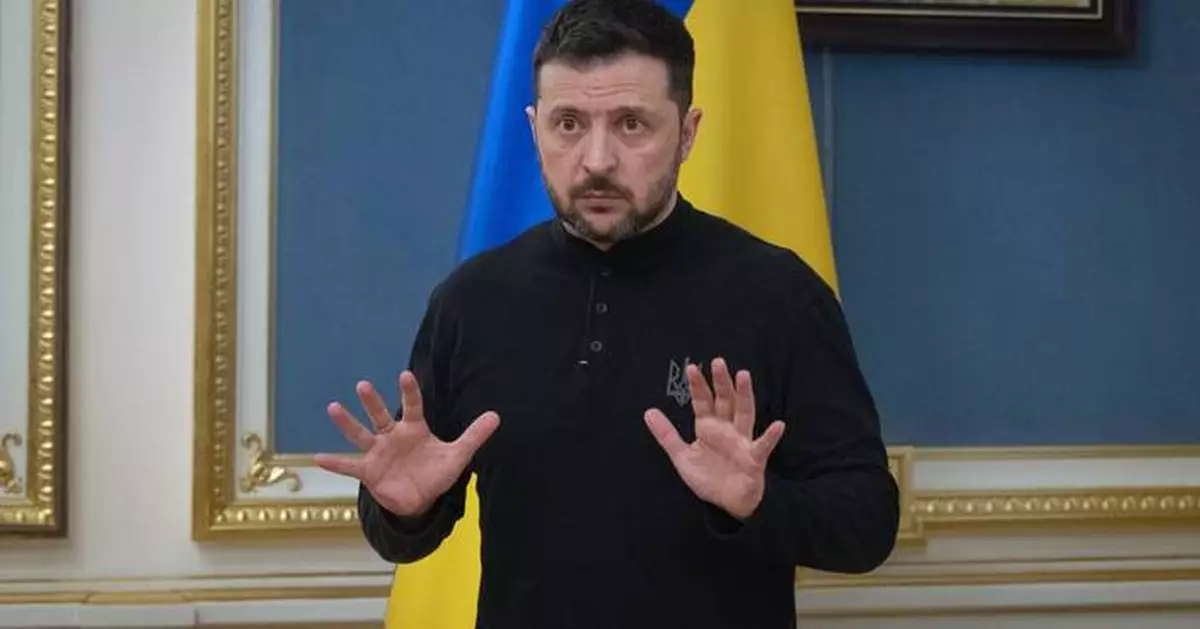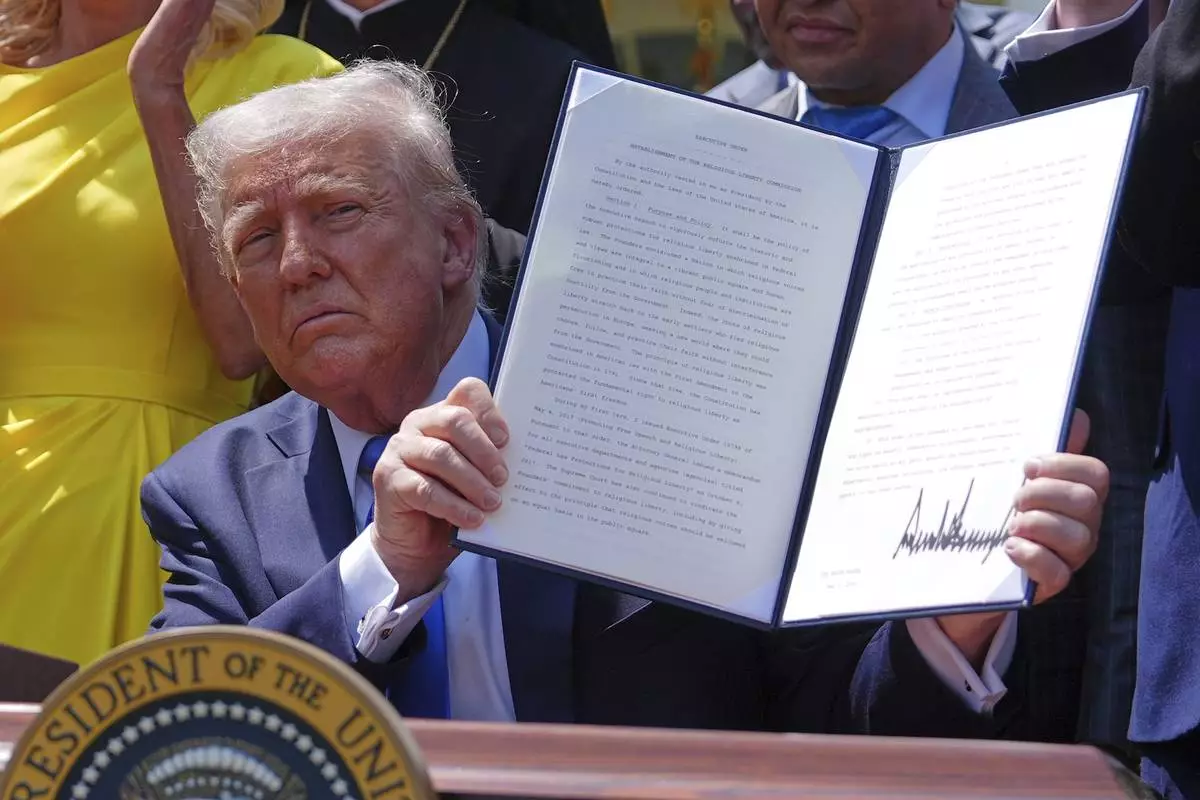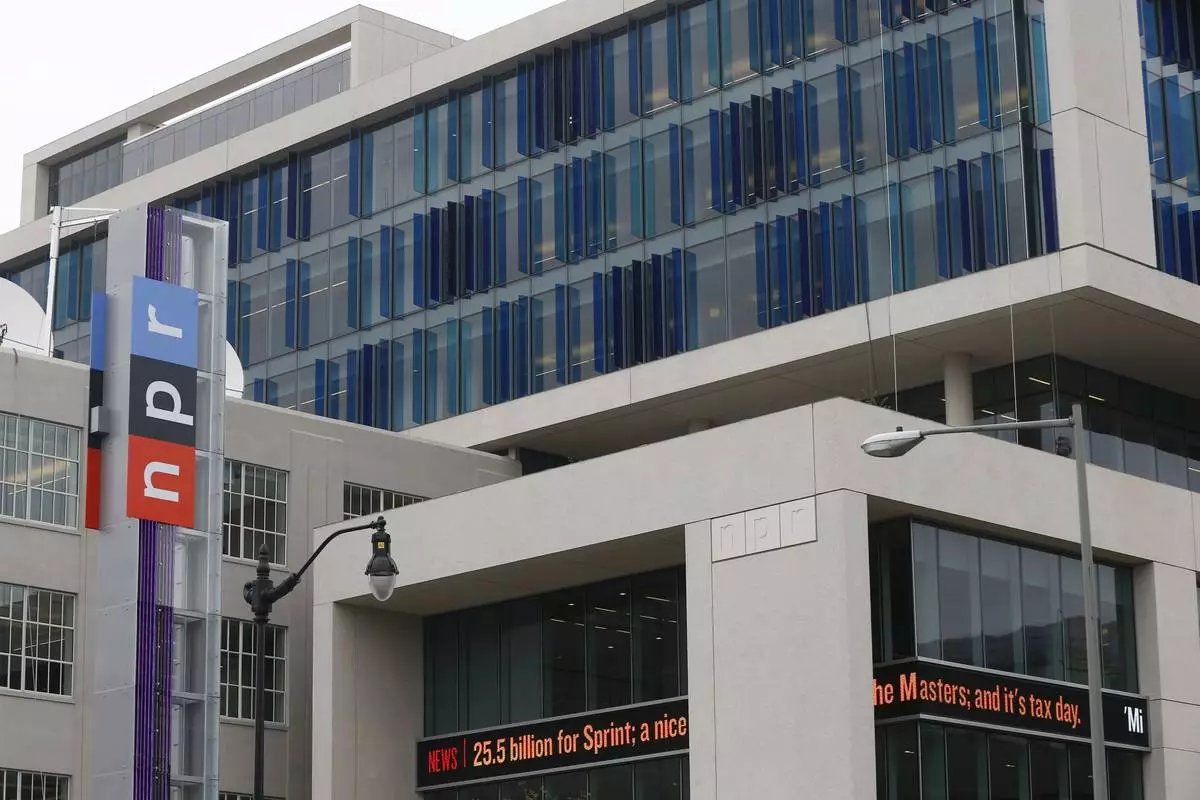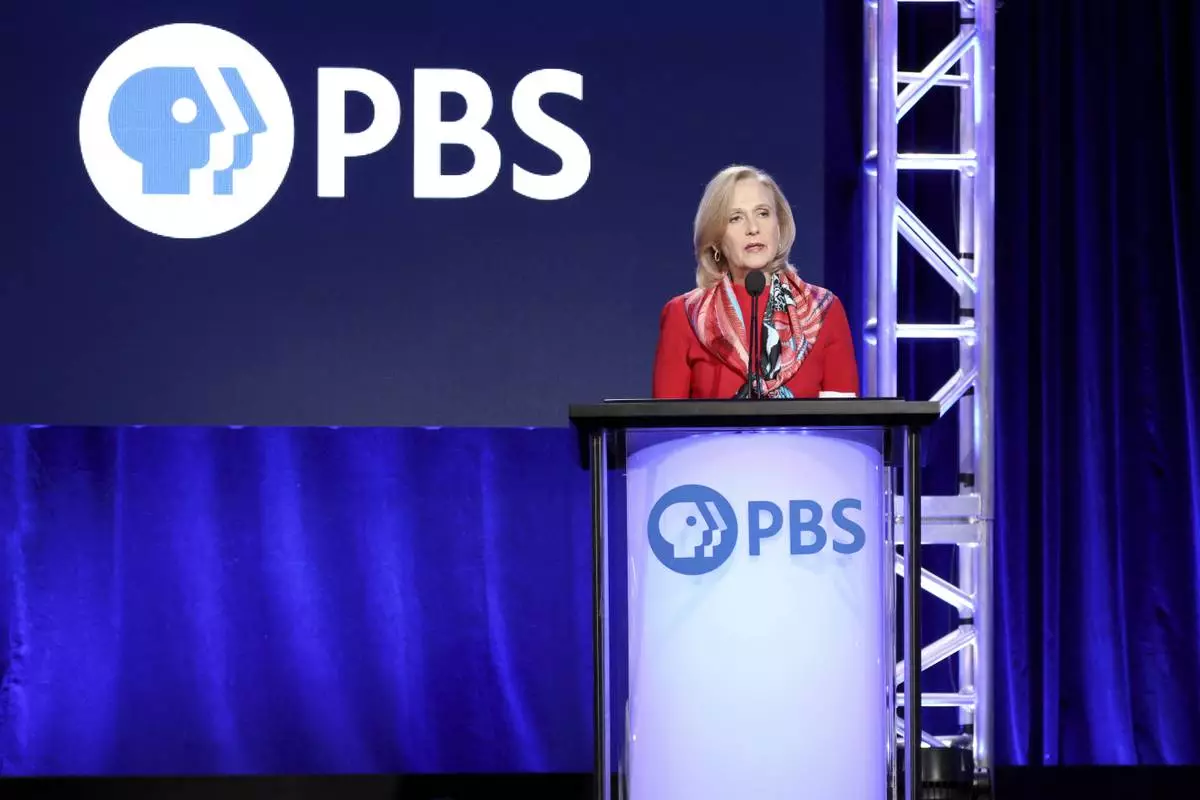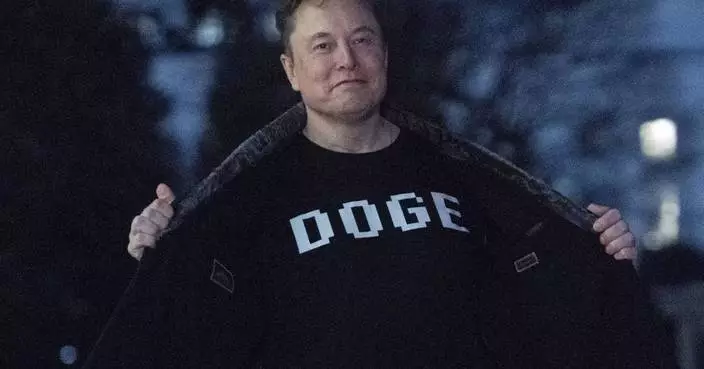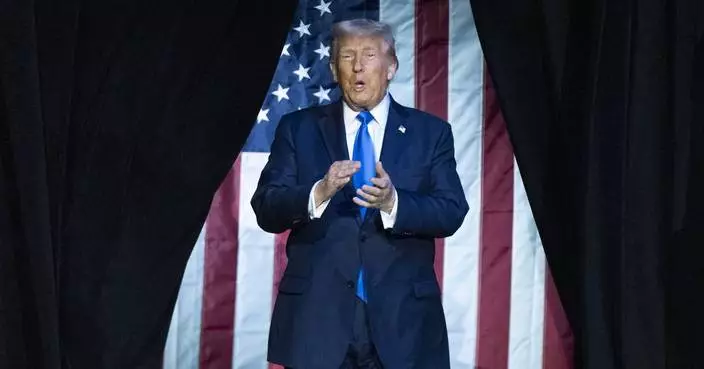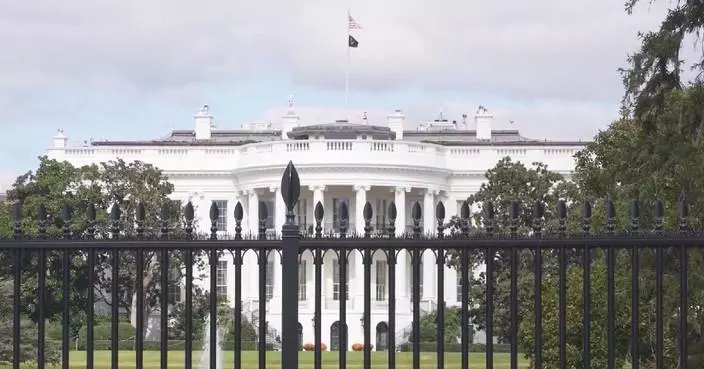KYIV, Ukraine (AP) — Russia and Ukraine have accused each other of breaking the terms of a tentative U.S-brokered deal to pause strikes on energy infrastructure, underscoring the challenges to negotiating a broader peace in the war in Ukraine.
Russia’s Defense Ministry alleged that Ukrainian drone attacks hit an electric facility in the Bryansk region early Wednesday and a power grid facility in the Kursk region on Tuesday, leading to a power cut affecting thousands of people.
It said that the Ukrainian government "is doing everything to derail the Russian-U.S. agreements on the gradual settlement” of the war.
Ukraine’s General Staff denied the allegations, saying in a statement Wednesday that Russia’s claims were part of a broader disinformation campaign aimed at justifying continued hostilities.
The accusations came hours after Washington announced a tentative agreement with Ukraine and Russia to pause attacks on energy sites and ensure safe shipping in the Black Sea, following three days of separate talks in Saudi Arabia aimed at implementing a limited, 30-day ceasefire that Moscow and Kyiv agreed to in principle last week.
However, conflicting statements emerged immediately after the talks on Tuesday. Both sides differed on the start time of halting strikes on energy sites and accused the other of violating the ceasefire.
Ukrainian President Volodymyr Zelenskyy said Tuesday Ukraine had agreed with U.S. negotiators in Riyadh “that a ceasefire for energy infrastructure can start today,” and expressed his country's willingness to comply with the agreement while warning Russia would face “strong retaliation” if it attacked Ukrainian energy facilities.
The Kremlin declared that Russian hasn't attacked any Ukrainian energy facilities since March 18 when Russian President Vladimir Putin agreed to halt the attacks for 30 days in a phone call with President Donald Trump. Kremlin spokesman Dmitry Peskov said Wednesday that Moscow will keep respecting the halt on strikes despite Ukrainian violations, saying that it marked a “good step forward thanks to the constructive relations with the American side.”
Ukrainian officials have contested the Kremlin claims.
“They’ve been hitting our energy sites with bombs, attack drones, and FPV drones," Zelenskyy’s communications adviser Dmytro Lytvyn said on X. "We’re not going into all the details, but there have already been eight confirmed hits on energy facilities. Every night our air defense forces shoot down nearly a hundred attack drones – and many of those drones were likely targeting other energy facilities.”
On Tuesday, the White House also announced that the sides had “agreed to ensure safe navigation, eliminate the use of force, and prevent the use of commercial vessels for military purposes in the Black Sea.”
Details of the prospective deal were not released, but it appeared to mark another attempt to ensure safe Black Sea shipping after a 2022 agreement that was brokered by the U.N. and Turkey but halted by Russia the next year.
The Kremlin warned Tuesday that a potential Black Sea deal could only be implemented after sanctions against the Russian Agricultural Bank and other financial organizations involved in food and fertilizer trade are lifted and their access to the SWIFT system of international payments is ensured.
Speaking during a visit to Paris on Wednesday, Zelenskyy accused Moscow of attempting to add extra conditions to what should be an “unconditional agreement."
“We expect the American side to ensure an unconditional ceasefire at sea,” Zelenskyy said. “Russia wants this war to continue. Russia is prolonging it. Pressure on Russia is needed for the war to genuinely end.”
He also argued that it's too early for the United States to ease sanctions against Russia, stating that Ukraine continues discussions with international partners, including the United States, Asian countries and the European Union, to prepare new sanctions packages.
The White House said in Tuesday's statement that the U.S. “will help restore Russia’s access to the world market for agricultural and fertilizer exports, lower maritime insurance costs, and enhance access to ports and payment systems for such transactions.”
U.S. Secretary of State Marco Rubio said that “we’re going to evaluate” the Russian conditions, noting that some of them “include sanctions that are not ours, they belong to the European Union."
Rubio said that after analyzing Moscow's demands, “we’ll present that to the president, who will make a decision” about the next step.
“I think everyone should be happy that the United States is engaged in a process of ending a war and bringing about peace," Rubio said. “It’s not going to be easy. It won’t be simple. It’ll take some time. But at least we’re on that road and we’re talking about these things, and we’re going to test it and see what’s possible.”
Peskov, the Kremlin spokesman, said that contacts between Russia and the U.S. "continue quite intensively,” and that authorities are “satisfied with how pragmatic, constructive and productive our dialogue is.”
U.N. Secretary-General Antonio Guterres welcomes the Black Sea commitments, which “will be a crucial contribution to global food security and supply chains,” said U.N. spokesman Stephane Dujarric. Dujarric wouldn’t say whether the U.N. will be participating in monitoring the Black Sea agreement.
Speaking in Paris on Wednesday alongside French President Emmanuel Macron, Zelenskyy emphasized the importance of having a foreign contingent to monitor and control the situation, conduct joint exercises, and deter potential renewed Russian aggression.
“No one wants to drag other countries into the war,” Zelenskyy said. “A contingent is very important for control".
He noted the importance of diplomacy but noted, “Only diplomacy that is based on the strength of the country itself and all of its partners can be powerful.”
Macron has talked about the possible deployment of European troops to Ukraine as part of security guarantees and has been driving the effort to form a “coalition of the willing” with U.K. Prime Minister Keir Starmer. Macron is set to host 31 delegations around the table Thursday morning at the presidential Elysee Palace.
Russia has warned it will not accept any troops from NATO members as potential peacekeepers in Ukraine.
Kryvyi Rih, Zelenskyy’s hometown, came under the “most massive kamikaze drone attack since the beginning of the war” on Tuesday night, the city administration head, Oleksandr Vilkul, wrote on Telegram.
Although no one was killed or injured, civilian infrastructure including warehouses, an administration building and a fire station was widely targeted, Vikul said. Multiple fires were sparked across the city, he said.
“Everyone is alive, thank God. It’s truly a miracle. The destruction is significant,” Vilkul said.
Associated Press writers Matthew Lee in Washington, Edith M. Lederer at the United Nations and Dasha Litvinova in Tallinn, Estonia, contributed to this report.
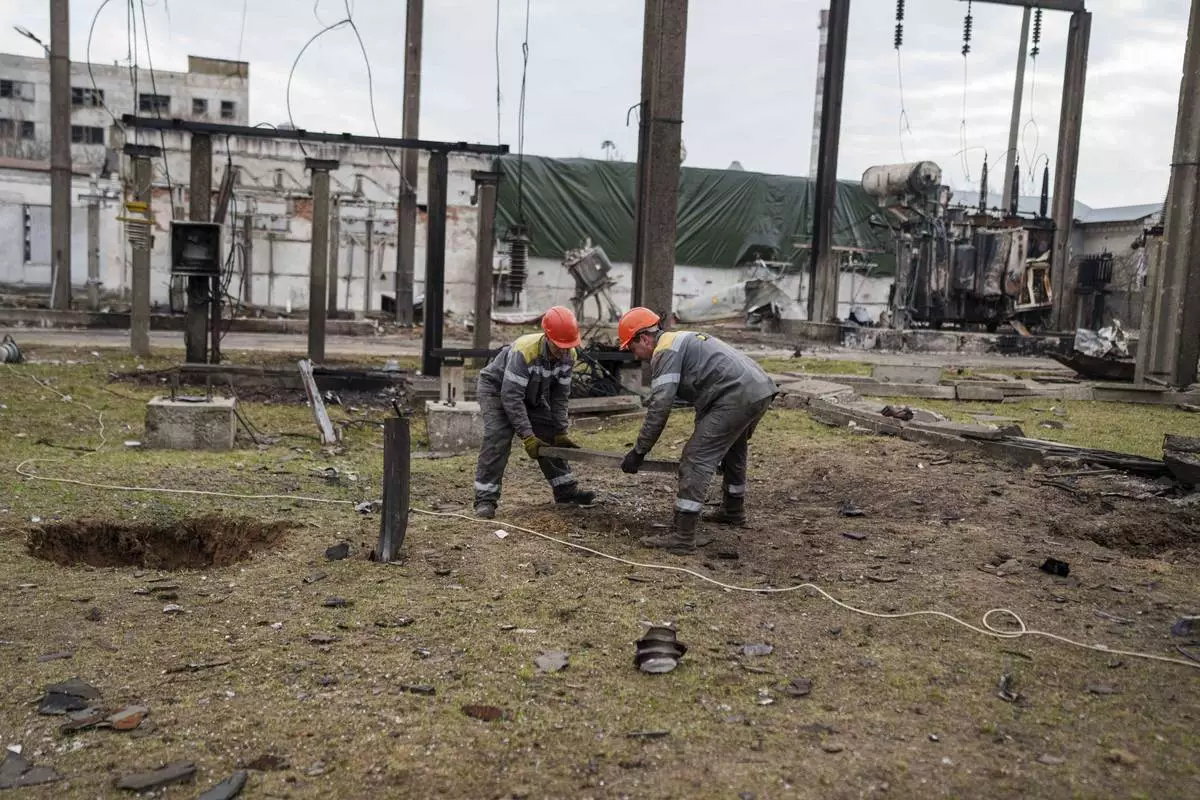
Workers of DTEK company clear the rubble during repair works of a substation destroyed by a Russian drone strike in undisclosed location, Ukraine, March 25, 2025. (AP Photo/Evgeniy Maloletka)
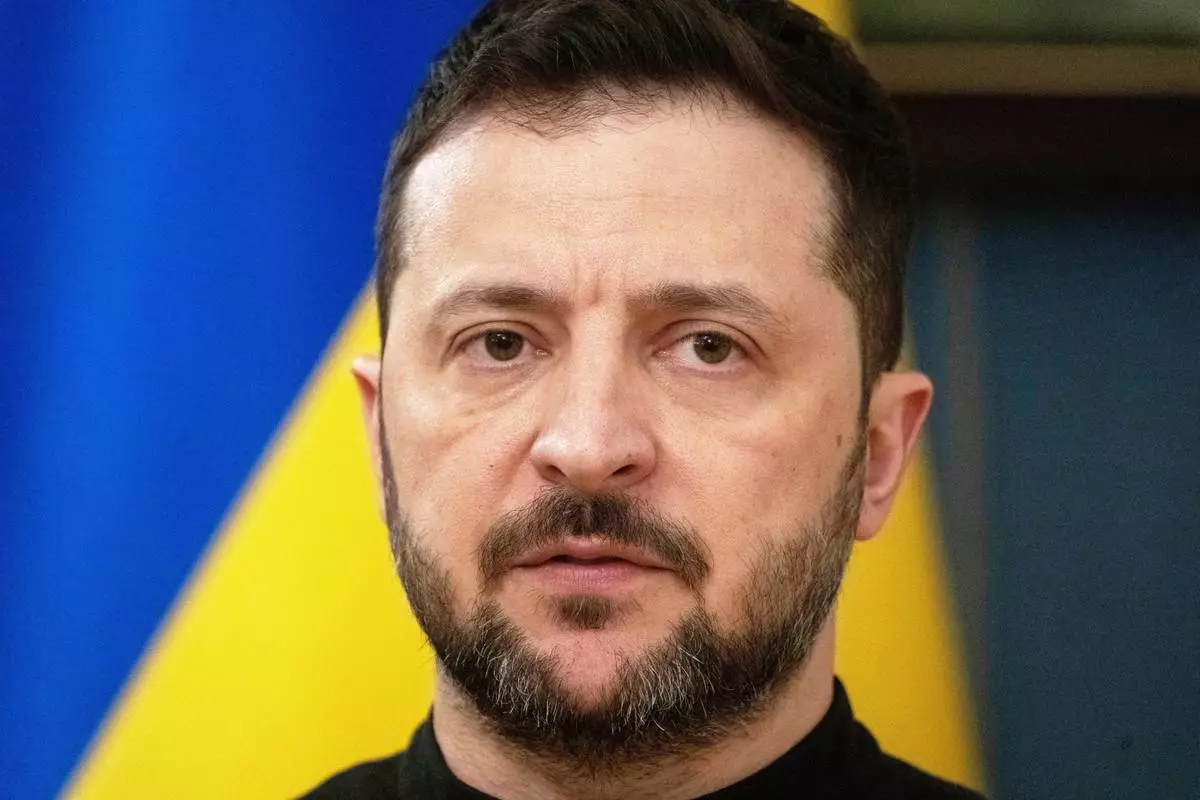
Ukrainian President Volodymyr Zelenskyy speaks during a briefing in Kyiv, Ukraine, Tuesday, March 25, 2025. (AP Photo/Efrem Lukatsky)
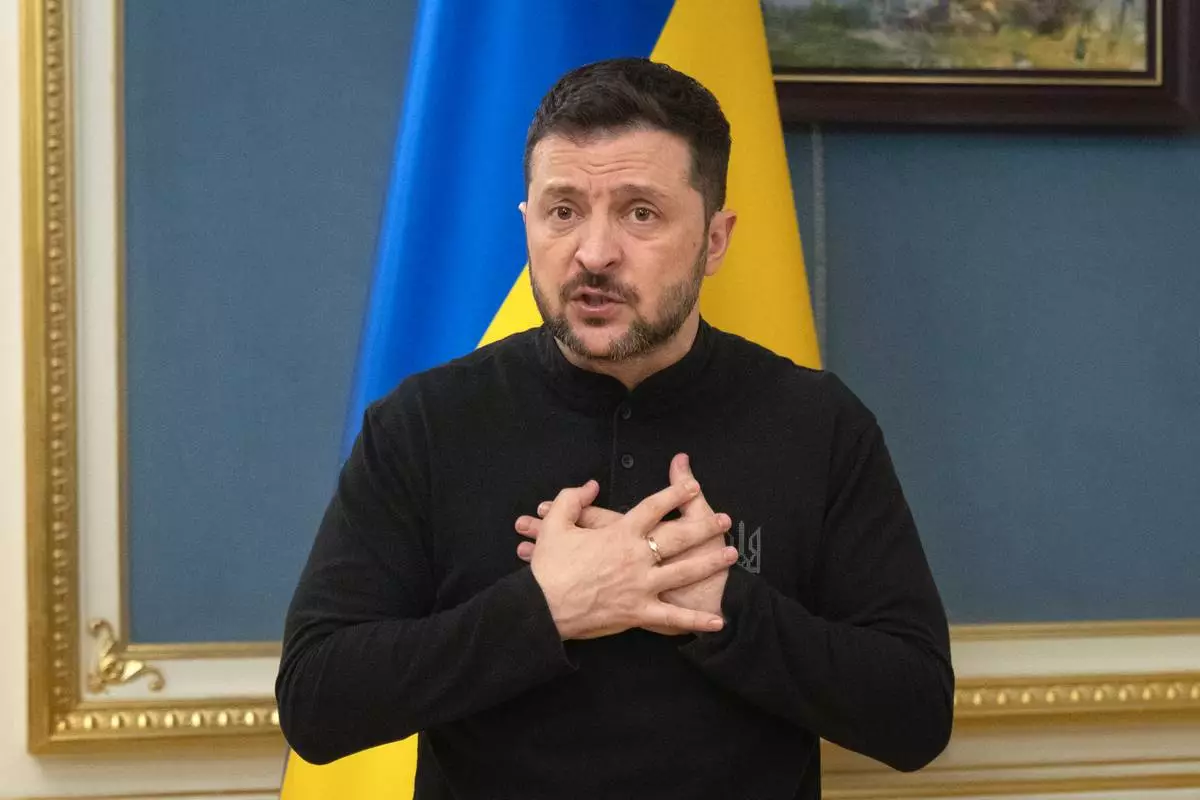
Ukrainian President Volodymyr Zelenskyy speaks during a briefing in Kyiv, Ukraine, Tuesday, March 25, 2025. (AP Photo/Efrem Lukatsky)
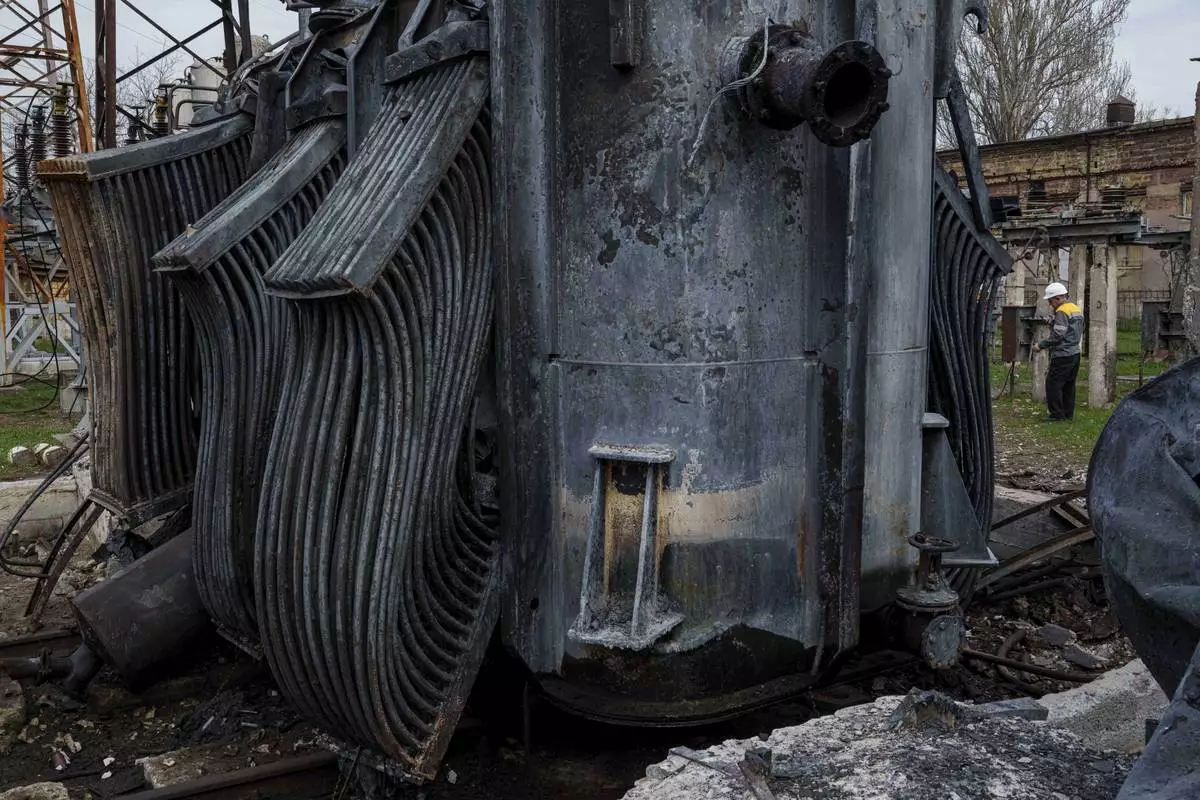
A worker of DTEK company walks in front of a transformer of a substation destroyed by a Russian drone strike in undisclosed location, Ukraine, March 25, 2025. (AP Photo/Evgeniy Maloletka)
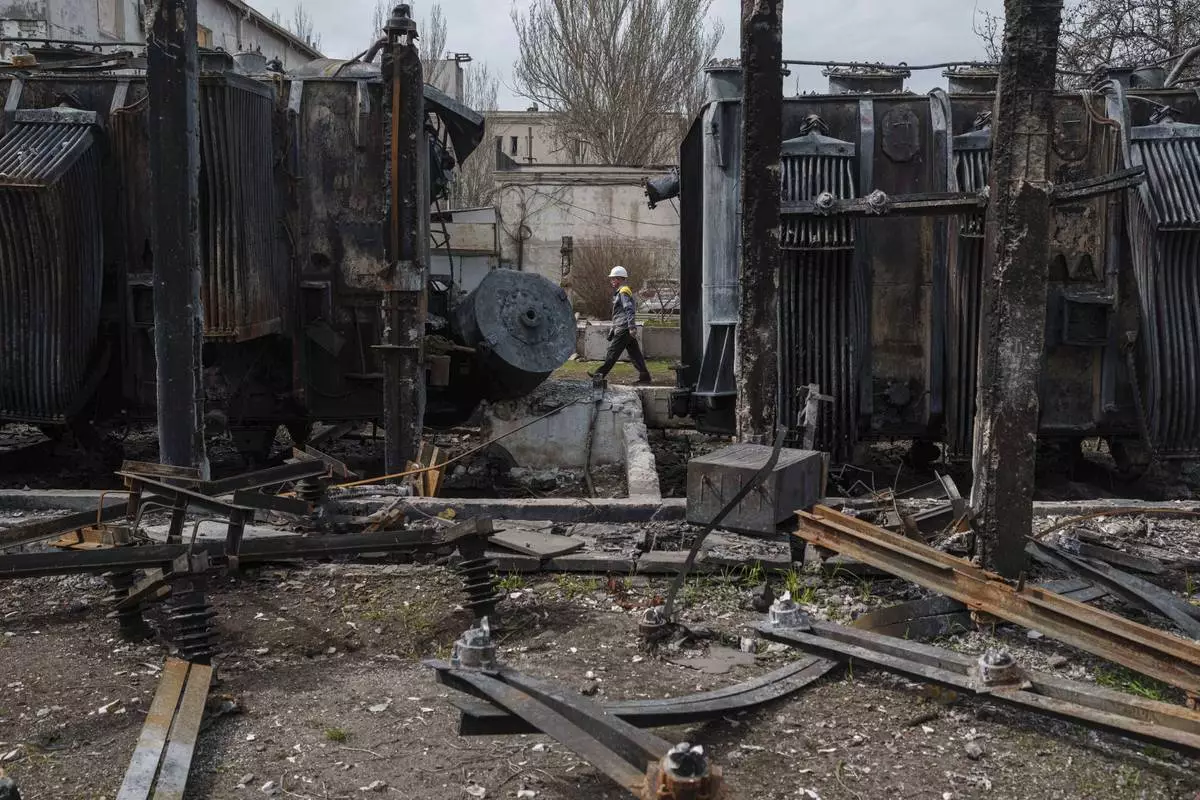
A worker of DTEK company walks in front of transformers of a substation destroyed by a Russian drone strike in undisclosed location, Ukraine, March 25, 2025. (AP Photo/Evgeniy Maloletka)
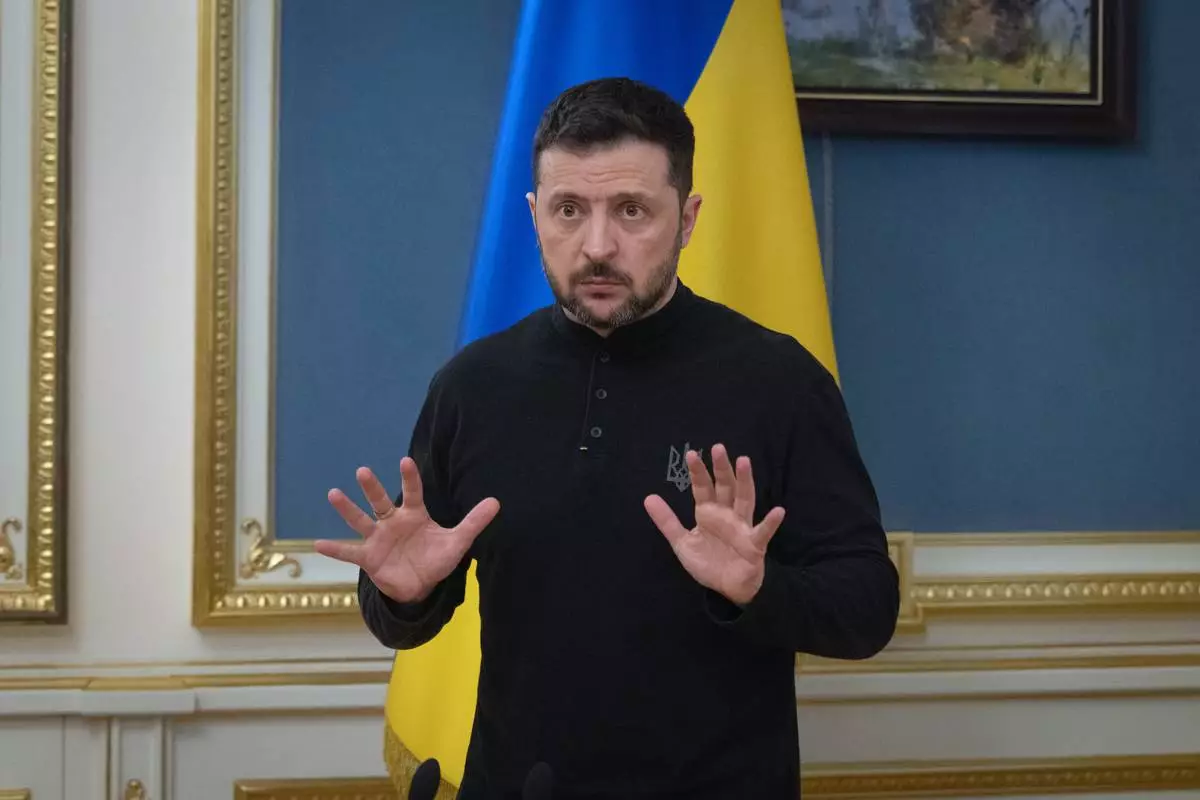
Ukrainian President Volodymyr Zelenskyy speaks during a briefing in Kyiv, Ukraine, Tuesday, March 25, 2025. (AP Photo/Efrem Lukatsky)


